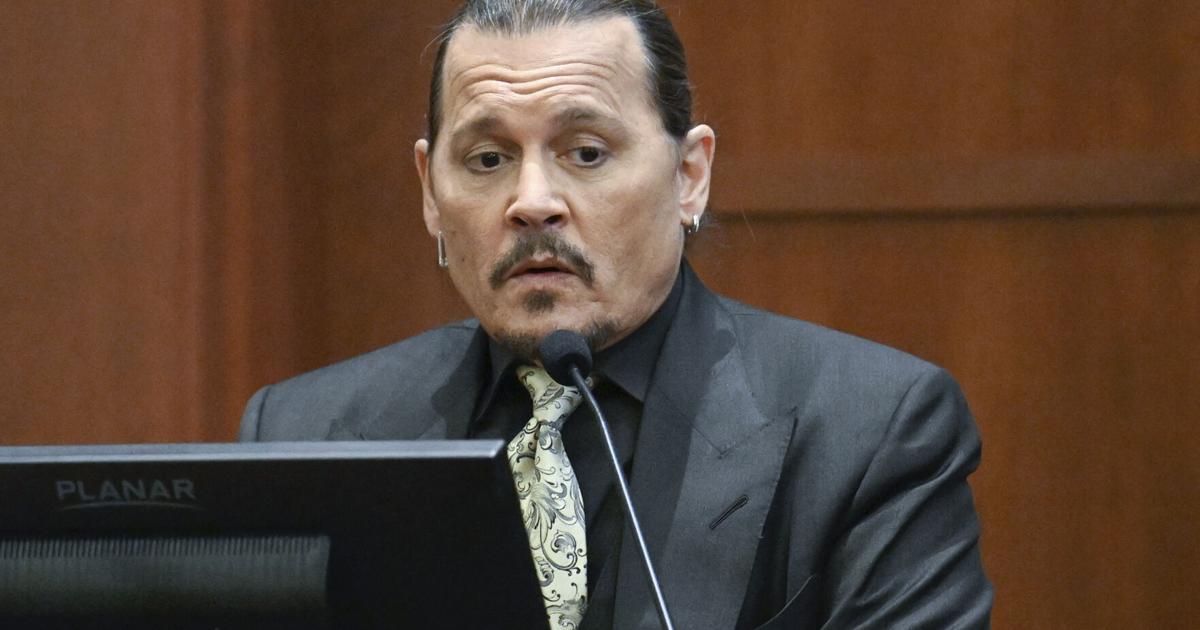Salacious and scandalous details about a celebrity couple’s relationship issues will always attract media attention, especially when the couple in question happen to be Johnny Depp and Amber Heard.
The defamation trial has become compulsive viewing and the legal encounter has brought issues such as domestic abuse and freedom of speech sharply into focus.
Obviously, where the case is heard can have a huge bearing on what sort of details are revealed for public consumption. Texas divorce laws, for instance, offer a collaborative process, which is the polar opposite of the adversarial litigation taking place between this high-profile celebrity couple.
Amber Heard ignited the prospect of litigation as a result of an article she wrote in the Washington Post back in 2018, suggesting that she had been subjected to domestic abuse in the relationship with Johnny Depp. This prompted Depp to launch a claim for defamation, which Heard responded to with a counterclaim for $100 million.
Here is a look at how this case has unfolded and what lessons can be taken from how this very public spat between two famous people has played out in the public gaze.
Why did Depp sue?
There are often allegations and accusations about someone’s behavior that become public knowledge but not all of these stories prompt a legal response.
The argument put forward by Depp’s lawyer when he launched the legal challenge to counteract what Amber Heard had said about his actions was that well-chosen words can be very damaging to a reputation. Depp is aggrieved that his reputation as a popular Hollywood actor has been badly tarnished and damaged by what Amber Heard said about him.
His claim is that Amber Heard has attempted to portray him as a real-life villain of the peace who has the propensity to be violent to his partner.
Depp vehemently denies the accusations of domestic abuse that Heard has aired publicly and launched the legal action to put his side of the story and try to repair the damage done to his popularity as a Hollywood star.
The right to free speech is fundamental to this case. The legal action revolves around the issue of whether was entitled to enjoy an element of legal protection as a result of free speech being protected under the First Amendment.
In some respects, the legal case is a straightforward question as to whether what Amber Heard said about Johhny Depp were false accusations. The onus is on Mr Depp’s legal team to demonstrate that their client has been unfairly accused of actions and words that it cannot be reasonably proven he is guilty of.
The case is electrifyingly fraught with emotional and angry exchanges between the couple. It is all about what sort of impact Amber Heard’s allegations have had on Johnny Depp, and what sort of damage it has done to his professional reputation.
No winners in this case
Another hard lesson that is likely to be learned from this trial is that even if there is an outright winner in terms of the legal process itself, you would also have to conclude that the reputational damage done to both Johnny Depp and Amber Heard will leave scars that will be hard to heal.
In might have been the perfect scenario for filling newspaper headlines and given social media platforms plenty to discuss, but a legal dispute should not become a showcase where so many negative aspects of both personalities have been in the limelight.
A general view amongst certain legal professionals is that even when a verdict has been delivered in the case there will be no absolute winner as a result of the reputational damage suffered as a result of their personality traits and faults being aired in public.
The problem is clear to see. The final verdict in this most high-profile case for decades is ultimately going to punish both celebrities, whatever the outcome.
No real impact when it comes to legal precedents
Sometimes, the ramifications and implications of a legal verdict can prove to be the catalyst for subsequent changes to the law.
The general overview from the legal profession is that this is actually a pretty straightforward defamation case, despite being a legal dispute that has been conducted under such close public scrutiny.
The cynical view to take would be that the legal action was instigated in order to benefit Depp in terms of achieving a favorable public opinion so that he can resume his career with minimal reputational damage.
It is questionable whether that is a plausible outcome. It is a case that is not really anything out of the ordinary from a legal perspective, and neither side is likely to be considered a winner either.
Can you sue for defamation in these circumstances?
It is interesting to visit the circumstances that caused Depp to launch a libel action.
Although the case is nothing out of the ordinary when it comes to satisfying scholars who are looking for potential landmark rulings relating to defamation laws, it is worth noting that the article in the Washington Post written by Amber Heard did not actually name Depp.
What she intimated is that the marriage was punctured by incidents of domestic abuse. These allegations were initially raised during the divorce proceedings. However, Amber Heard did not specifically revisit these allegations in her article and she didn’t even name Depp.
What she did do was to bring her experiences into the #MeToo movement arena, leaving readers in little doubt as to what she was alluding to, and who she was talking about.
Despite this, the legal system allowed Depp to launch a lawsuit on the basis that he had been defamed by implication.
The framework of general defamation laws offers a scenario where even statements that may on the surface be accurate but with a degree of neutrality, there is still scope for a defamatory insinuation.
The mere implication made by Amber Heard that Johnny Depp may have abused her would be sufficient grounds for taking legal action in the form of a defamation suit.
Defamation by implication is nothing new in the legal world. Therefore. you could reach the view that the Depp-Heard is nothing new from a legal precedent standpoint.
Attempts to dismiss the case were not successful
Another interesting lesson to take away from this case is how it proceeded, despite attempts by Heard’s attorney making a standard motion to dismiss the legal claim.
Lawyers for Amber Heard made the argument that attorneys acting for Depp had not presented enough substantial evidence to prove that their client had been libeled.
What we learned from this attempt to deny Depp an opportunity to clear his name in a court of law is that the judge took the view that it is up to a jury to reach a verdict once all arguments have been heard and evidence presented.
The article in the Washington Post that motivated Depp to sue was all about speaking out against sexual violence, according to Heard.
Depp took exception to the content and cited three specific statements within the article that he believed were defamatory.
Firstly, he objected to her headline referring to sexual violence. He also objected to the paragraph where she positioned herself as a public figure who had decided to represent the movement against domestic abuse.
Amber Heard also made allegations that institutions tend to be very protective towards men who are accused of abuse.
The bottom line is that these three specific statements could easily be interpreted as revisiting the allegations of domestic abuse made by Amber Heard in 2016. As already stated, the article did not name Depp or even provide any details of their relationship but the legal argument put forward by Depp’s lawyers is that the statements could easily be interpreted that Heard was reasserting the allegations made back in 2016.
The original argument put forward to dismiss the legal claim made by Depp was that Heard could not be considered accountable for the headline as it was penned by Washington Post editors, not Amber Heard.
No smoke without fire
Defamation cases can contain many gray areas when it comes to how evidence is viewed by a jury and it can be notoriously difficult for certain key facts to be universally accepted as true by all parties.
Put simply, if there is clear evidence to show that abuse has taken place, whether that is emotional, physical, or psychological, it is going to be hard to win a defamation case in the face of such compelling information.
What is interesting about the Depp-Heard case is that there are incidents of verbal abuse by Depp that have been captured on tape. These have been played to the jury. There is still a dispute about whether Depp has physically abused Amber Heard and because of these two scenarios it has been argued by Heard’s legal team that the article could not be considered defamatory, overall.
What has muddied the waters in this case is the testimony provided by Depp which contained audio recordings where Heard amidst to striking out at Depp.
Allegations of domestic abuse have been cited by both parties. That is a good reason why the judge decided to allow both parties the chance to put their side of the story to the jury and allow the libel action to proceed.
Proving defamation
Regardless of how famous both parties in the case are, there are a number of key elements that have to be satisfied for a defamation lawsuit to proceed.
When Johhny Depp decided to sue Amber Heard on the basis that his reputation had been badly damaged by her allegations it was still a matter of meeting the criteria required by the courts.
Every court of law has an initial task that involves finding an appropriate balance between the right to free speech, contrasted with the right to not be subjected to defamation.
The first key point is that someone must have made a statement of fact that is considered to be defamatory, rather than simply offering a personal opinion that is not based on fact.
Another vital element is that the defendant must have published defamatory information about the plaintiff. This is clearly what happened in the Depp-Heard case as the article that appeared in the Washington Post fulfilled this criteria.
Another relevant aspect of defamation laws is the requirement that a defamation of character claim needs to be based on a statement referring to the plaintiff. It is not necessary to refer to the plaintiff by name. A statement can still be regarded as defamatory when it is reasonably easy to identify who the remarks refer to.
It was considered obvious that Amber Heard was talking about Depp in the Washington Post article despite the fact that she did not mention his name throughout the piece.
Social media has changed the landscape
Probably the most worrying aspect of the Johnny Depp- Amber Heard trial is the fact that social media could be argued as having a detrimental impact on the outcome, as well as the reputation of both parties.
The case has been dubbed as a so-called “Trial By Tik-Tok”. Fans who support either Depp or Heard have taken to this platform and other social media channels to spread rumors and make accusations of abuse, without foundation.
Unfounded claims and hearsay quickly gain traction with the oxygen of publcicity and tend to spread like wildfire once they are released on sites such as Tik-Tok.
Users who post on these sites are very clearly in either the Depp or Heard camp. There doesn’t seem to be any middle ground. It seems that the influence of social media has definitely changed the landscape in a way that seems to ensure that even the most salacious case, such as Deep vs Amber, for instance, has little chance of being investigated in anything like a dignified manner.
One of the big lessons learned from the Depp-Heard trial is that, thanks to social media influences, there is rarely a clear winner, whatever the legal outcome.




